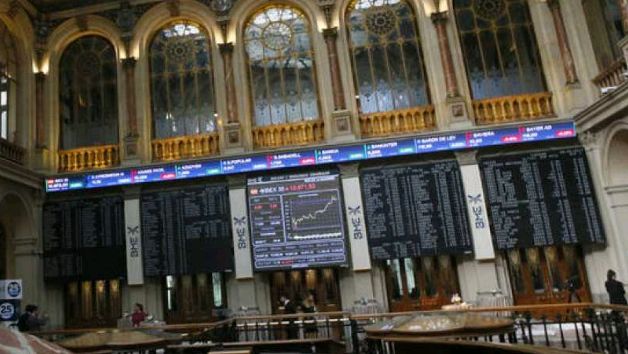- For the moment the index is surviving and remains close to 10,300
- Investors assume Monday will be a date loaded with tension and talks

The Ibex 35 finished the last week in September with a gain of 0.8%, forgetting about the ongoing tensions in Catalonia ahead of Sunday’s independence referendum. It ended the week up 0.3% after posting a gain of 0.5% on Friday, which brings it closer to 10,400 points. Other European markets were also up, led by the Dax with a gain of 0.8%.
- 11.467,300
- 0,24%
BBVA was the biggest riser with a gain of 1.36% to 9.54 euros, followed by ArcelorMittal, with a gain of 1.28% and Mediaset which was up 1.25%. The steelmaker rose after launching a counter offer for a bond purchase of 1.06bn euros. The group will finance with existing treasuries.
On the other side, DIA was the worst performer after losing 0.79%. It was followed by Indra, which was down 0.67% and IAG (-0.66%). Other stocks such as Telefonica (-0.24%), Banco Sabadell (-0.11%) and Caixabank (-0.09%) were also down on exposure to Catalonia.
In the financial sector, Unicaja remained as the best bank since its debut at the end of June. The bank is up 15% in its first quarter and no bank comes close to such a performance.
HOW WILL THE MARKET REACT AFTER 1-O?
After Sunday’s illegal referendum, it’s expected that the Catalans and the government will sit down to negotiate a temporary agreement to the situation. However, it remains to be seen what will happen on Sunday, and how investors will react.
“We continue to see two scenarios as the most likely. First, some voting stations are likely to be open, but not all; those could be in some districts that choose to disobey the judiciary or where voting could take place in alternative, non-official venues, not controlled by the police. Second, the local police might strictly follow the orders of the judiciary to stop the referendum from taking place altogether.,” Barclays said ina note on Friday.
“If the referendum takes place, the outcome is highly likely to see a relatively low participation level (below 50%), not only because of the disruption caused by the latest judicial measures, but also because only the pro-independence voters are likely to be motivated to take part in this illegal referendum. Whatever form of referendum takes place, we would expect a clear victory of the separatist vote,” they added.
In other news, the week had important news regarding tax reform in the US. However, it will be a complicated process, which has already received some critics as some say it favours the rich. On Thursday, national economic adviser Gary Cohn said he could not guarantee that every citizen in the middle class would see reduced taxes. The dollar was down, with the euro/dollar rate at $1.1792 (+0.07%).
In Europe, investors were alert to comment from the ECB. Francois Villeroy de Galhau said on Thursday that the bank should reduce the speed of active acquisition, but maintain monetary policy.
In macro data of the day there was a deluge of figures reported. German retail sales in August rose 2.8%, below the 3.2% expected. Unemployment in the same country was lightly below forecast (5.6%), while CPI in the eurozone increased 1.5%.
TECHNICAL ANALYSIS
According to Bolsamanía technical analyst Césra Nuez, “the Ibex 35 is still at the average of the last 200 sessions and is struggling to not lose the key support of 10,087 points. We will remain attentive to this level.”
“Above, the resistance is found at 10,410 points. The last week has saw us approaching it without any real success.”

